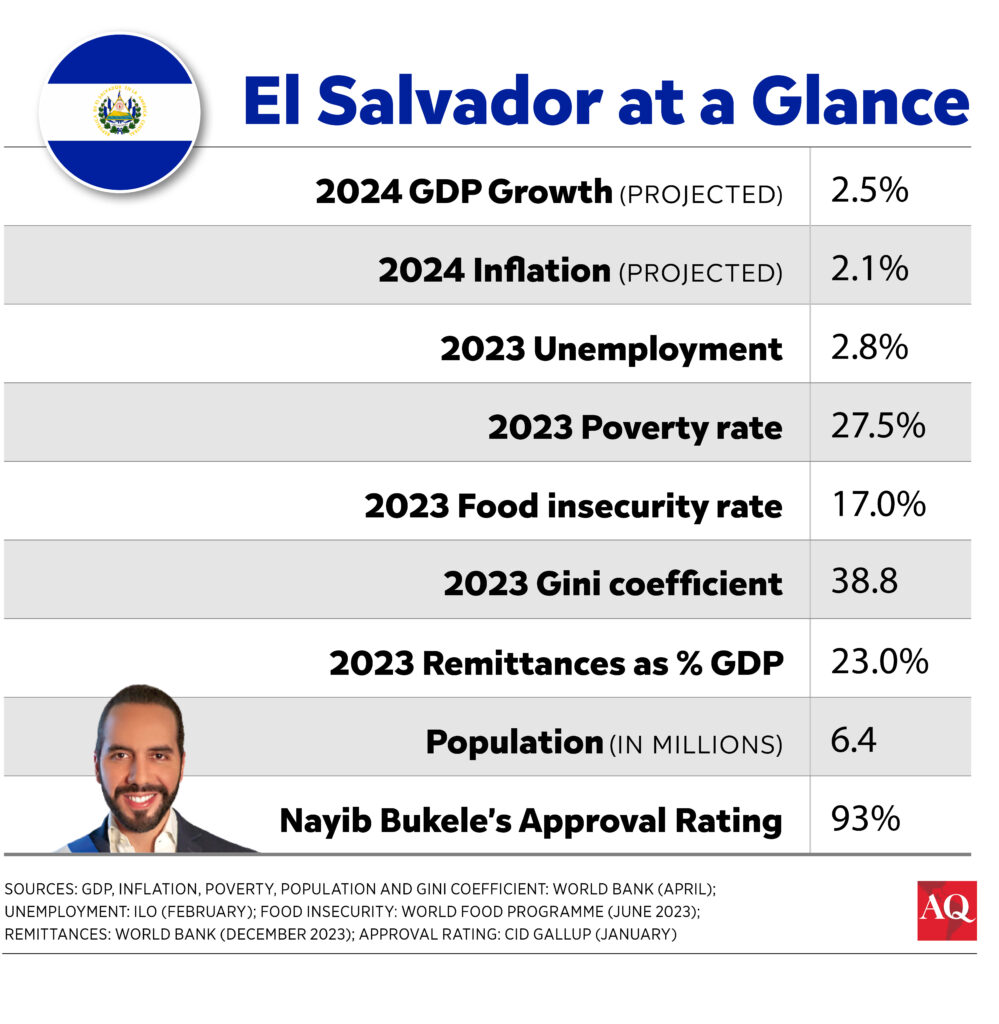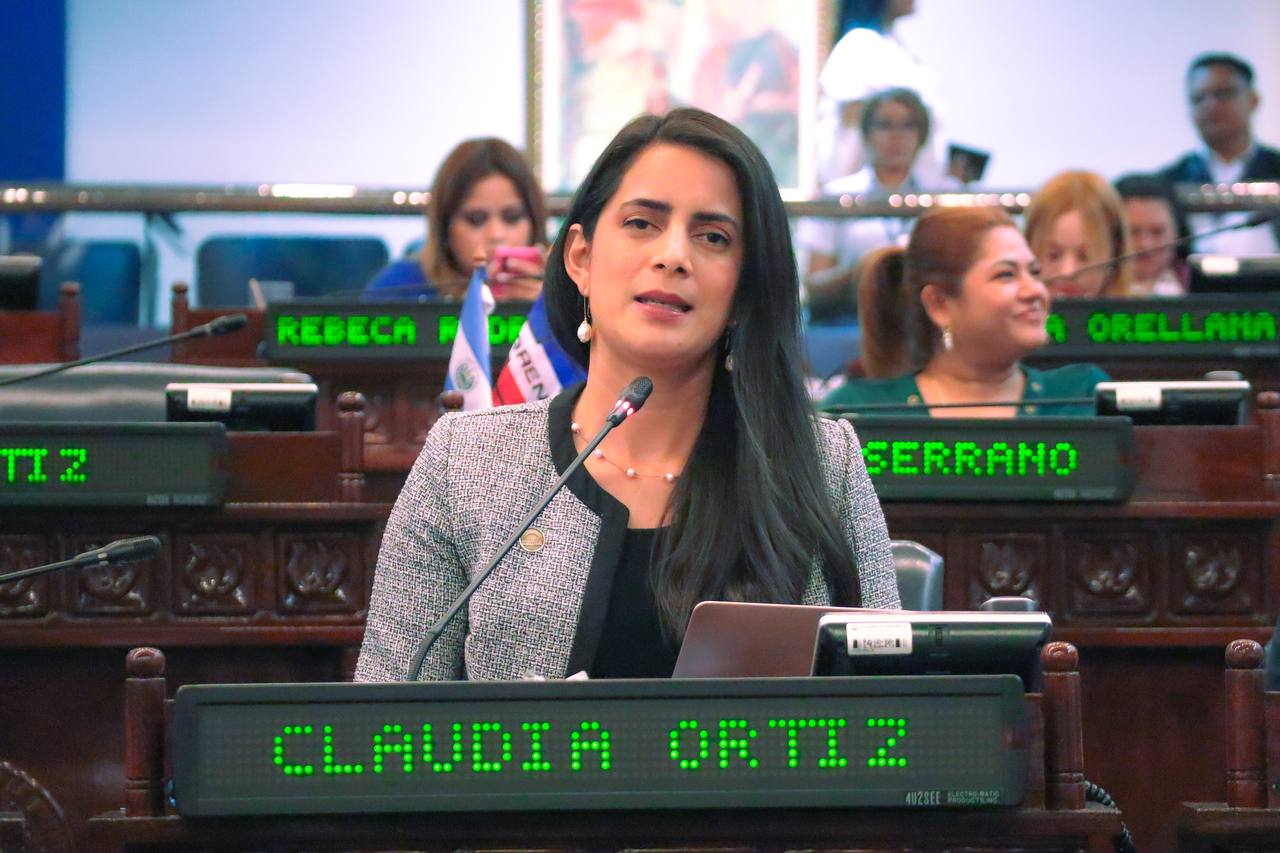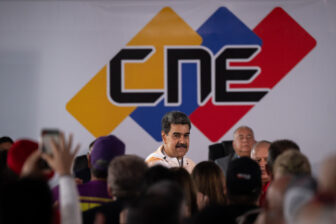In the last days of El Salvador’s outgoing Congress, rumors swirled that President Nayib Bukele’s Nuevas Ideas party might introduce reforms to the nation’s Constitution. Opposition lawmaker Claudia Ortiz sounded the alarm, warning that major shifts could occur overnight.
She was right. Earlier this week, in its final session, the Congress approved a motion allowing the current legislature to change most of the Constitution virtually at will. A three-quarters majority, or 45 votes, is now required, and the ruling coalition controls 57. “The most important laws can [now] be changed on any given day,” Ortiz said in Congress. “We are no longer going to have law in the country.”
Ortiz, 36, from the centrist party VAMOS, is one of only three opposition members in the nation’s new Congress, which comprises 60 lawmakers, and took office on May 1. As the most popular figure in El Salvador’s political opposition, her course over the next three years will test how the opposition hopes to check Bukele—and how the ruling party will fight back.
Bukele and his coalition won the February 4 elections in a landslide. Ortiz provided perhaps the only bright spot for the opposition: With 69,000 votes in the capital, she won re-election and the highest vote tally of any non-Bukelismo candidate. Her campaign demonstrated the small cracks in Bukele’s popularity, focusing on the erosion of democratic checks and balances, the rising cost of living, and her staunch opposition to the government’s signature state of exception. Under the special conditions, the administration has suspended suspected gang members’ rights to facilitate mass arrests, often on thin grounds. First implemented two years ago, it was just extended for its 25th-straight 90-day period on April 9—and remains popular.
Ortiz voted against each renewal, calling it a continuation of misguided hardline security approaches. “These ‘iron fist’ policies try to hide that other things are not being done to build the foundations of a more prosperous society, a less violent society, and a less unequal society,” she told AQ. A lawyer, researcher, and civil society organizer by training, Ortiz has been a strong voice for human rights in Congress, where, in the last session, she was assigned to committees on justice and human rights, women and gender equality, and the family.
“She’s seen as this fighter,” said Luis V. Villaherrera, the founder of TRACODA, a transparency NGO based in San Salvador. “She’s trying to fight for the rule of law, transparency, democracy. Many in civil society feel she is the “only voice [they] have left in the political spectrum,” he told AQ.

A weak economy
Some of her perspectives are gaining ground. According to a March poll, over nine in 10 Salvadorans disagreed with at least one element of the state of exception. Meanwhile, Bukele and the ruling party may become vulnerable over a struggling economy. In a January survey, 70% of Salvadorans flagged the economy as the country’s biggest challenge, as around half the population likely suffers moderate to severe food insecurity.
Repairing the economy is a top focus of the Bukele administration’s second term. The country faces high food prices and an unprecedented debt burden, but it has a solid base on which to build. The IMF projects a 3% growth in 2024, and the World Bank forecasts 2.7%, above the pre-Bukele average from 2013-19 of 2.5%.
Bukele’s strategy for improving the economy is centered, in part, around brandishing the country’s newfound image as both safe and modern to attract investment and improve infrastructure. He’s already had some success, such as Google’s recent announcement they are building a new office in the country. El Salvador’s Congress has been integral to attracting business and approving Bukele’s budget measures and tax breaks.
But critics like Ortiz say that Bukele and the ruling party have made government spending much less transparent and more vulnerable to inefficiency and graft. In her first term, Ortiz built a national profile as a financial watchdog, calling out inconsistencies in the budget, a lack of transparency, and overspending. She’s also been a vocal critic of Bukele’s signature Bitcoin policy.
Sounding alarms
Observers can expect Ortiz to remain the most prominent gadfly in the country’s political machinery. She said she foresees escalating violations of norms to undermine the balance of power—and the transparency of elections institutions. Ortiz and the opposition vocally opposed Bukele’s packing of the high courts with allies, his attacks on the free press, and, most recently, aberrations on election day’s vote count. “So many institutions, they are suffering. They are decaying their political capital and their credibility before the people,” Ortiz told AQ.
Ortiz and a small core of allies will continue to sound alarms about such incidents. Ortiz, like Bukele, generates compelling, highly produced social media content and a respectable 87,000 TikTok followers. She’s shown herself capable of attracting international media attention. But this noise may not amount to much: Ortiz’s complaints of vote count problems, despite being widely circulated in El Salvador and abroad, went unanswered.
All this has made her a target. Ahead of February’s elections, the government passed targeted electoral reforms that sought to erode Ortiz’s voter base. The reforms changed how congressional seats were distributed and mandated that all votes from abroad—which heavily favored Bukele and his party—be counted in her electoral district. This kind of electoral gamesmanship can be expected to continue, putting up more roadblocks for the opposition.
Bukele and his notorious social media machine also undertook a directed digital campaign of criticism and bullying to label Ortiz a friend of the gangs, said Villaherrera. “The presidential campaign was about being safe … and when they attack her and the other political parties, it was [that] they want the gang members to be free. A lot of people really believe that,” he said. Ortiz remains a top target of pro-Bukele meme accounts, where videos mocking her are among the most popular posts. Even memes of Ortiz covered in gang tattoos circulated widely. These social media smear campaigns will almost certainly intensify in the coming years.
“This is an administration that does not accept dissidents,” Ortiz said.
Given Bukele’s electoral dominance, articulating any effective opposition will take time. Ortiz is likely to be at the center of it. “[An] alternative cannot be built with just one person or one party,” said Andy Failer, the head of Nuestro Tiempo, another opposition party. “But I believe Claudia will be a pivotal figure in that process.”








